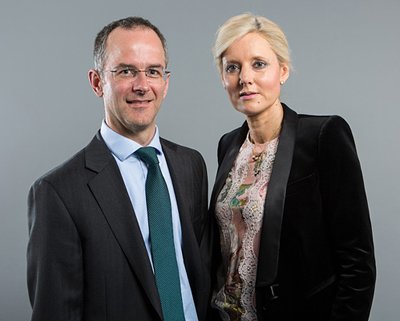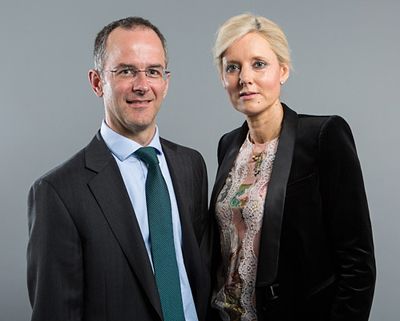CHARTING A COURSE OUT OF DARK WATERS
Published by Gbaf News
Posted on July 14, 2014
7 min readLast updated: January 22, 2026

Published by Gbaf News
Posted on July 14, 2014
7 min readLast updated: January 22, 2026

Becky Stones and Rob Mason – FRA
Allegations of failures of culture and conduct continue to surface within the banking sector. The most recent is the complaint by NY state Attorney General Eric Schneiderman against Barclays relating to its Dark Pool. There are strong economic arguments for moving beyond the industry wide cycle of conduct shortfall leading to regulatory censure leading to civil litigation. Accordingly, many within the sector and their legal advisers argue that all significant bad behavior has been uncovered and it is now time to move on. This, however, appears unlikely.
It is clear from the recent scandals that being proactive, engaging and cooperative with regulators and prosecutors pays off. The penalties and fines for those not being proactive and fully cooperative with the authorities have been heavy, the most recent example being the $8.9bn fine for BNP Paribas. Denial and/or deferral is not the ethical or economic option. In contrast, UBS avoided a €2.5bn fine from the European Commission for proactively reporting its participation in the LIBOR fixing cartel. Banks who undertake a thorough review of parallels, to “read-across” from each of the conduct based scandals over the last years together with implementing effective remediation throughout all business areas will stand at a significant advantage. Regulators and prosecutors are now more aggressive, clients less trusting and ex-employees more disaffected. Those who do not actively get on top of conduct issues run the risk of paying a significantly heavier price in the future if these issues are subsequently unearthed by regulatory enquiry, through client complaints, by whistleblowers or by pier group allegations and revelations. The resultant damage will extend beyond penalties and fines to loss of reputation, clients, profits and the loss of control of business development or strategic direction to various regulators. Those firms who remain reactive, putting out one fire after another, executing one set of plans after another at the behest of or in response to different regulators, can expect to lose significant market share to those able to focus on a well-defined strategic path.

Rob Mason and Becky Stones
This read-across informed by recent and ongoing investigations is not just a review of the low-hanging fruit where small pockets of employees have behaved badly in the past. It is a thorough deep-dive lateral analysis into all areas of activity, for example a look into the finer details of client order handling and trade execution, client communications and representations and market observations and fixings and associated trading behavior across all asset classes and trading venues. At its heart lies the question as to what the root cause is and where the next manifestation is likely surface. This requires far more than the training of all staff on the broad concepts of culture and conduct. Whilst this a good place to start it is indeed just that, a start. Such generic training would be unlikely to cause a trader doing his job in the same way as he has always done, just as he was taught by his manager, to adequately question whether his specific conduct stands up to scrutiny.
Until such a thorough read-across is undertaken and remediation and monitoring is implemented, we believe the next set of headlines reporting on the next major investigation remains inevitable.
We look at the read-across from the recent lawsuit filed against Barclays relating to its ‘Dark Pool’ activity. Dark Pools are private trading venues. They were created to enable institutional investors to match buy and sell orders for large volumes of stock away from traditional exchanges where High Frequency Traders (‘HFT’) operate.
These dark pools were actively marketed by their operators – which include some of the largest stock-trading investment banks – as a safe haven from HFTs for institutional investors.
In the US, financial market rules (specifically Reg. NMS) lead to large orders being split across multiple traditional exchanges because of the requirement to get the best price regardless of speed or reliability of order execution. HFTs take advantage of this order fragmentation by placing aggressively priced orders in small size across multiple exchanges and watching the patterns of execution to identify when large orders are being executed. To gain a critical few microseconds advantage in accessing trade order data and the placing their own orders, HFTs use the very latest computer and network technology and pay exchanges to keep the computers which run their HFT algorithms in the same data centres as the exchanges own computers. Once a large order is identified, HFTs can apply their speed advantage to trade with the market in front of the remainder of the large order. This pushes the price to a worse level for the original order. A few microseconds later, the HFT can then put this liquidity back into the market at the worse price with the expectation that the large order will execute against it providing a quick profit for the HFT and worse pricing than anticipated for the large order.
This HFT behaviour led to the creation of alternative opaque trading venues. These dark pools were actively marketed by their operators – which include some of the largest stock-trading investment banks – as a safe haven from HFTs for institutional investors. Eric Schneiderman, NY state attorney general, recently filed civil fraud charges against Barclays over its dark pool alleging that it favoured HFTs over other investors and misrepresented the level of HFT activity in its dark pool to client.
What is the read-across from this lawsuit? Paradoxically, the equity market is one of the better regulated markets. Dark pools, however, fall outside of many of these regulations. To read across, banks should proactively examine other areas of market-making activity for falsified marketing material and representations to its clients. We would recommend that banks undertake a risk-based sampling of marketing material and examine for misleading client representations and to confirm that different clients receive consistent information and a consistent message. The risk-based sampling would focus on areas where trading is lightly or not regulated and pricing is opaque.
Ongoing risk-based sampling should be based upon an understanding of the fundamental risk – in the instance of dark pools, though not in themselves inherently problematic, potentially a combination of a lack of transparency disguising conflicts of interest as evidenced by misrepresenting marketing – sampling should be based upon where else these risks could surface and result in potential abuse.
All such testing and deep-dive review results should be fully documented and evidenced to provide audit trail of both good and sub-standard practices requiring remediation throughout the organization. As banks become more proactive they should be in a position to demonstrate good behaviour and ongoing sampling results. As such they frame breaches as anomalous rather than systemic – a key defence, a key element of compliance and a key way to test and underpin the fundamental value of a specific business line.
Forensic Risk Alliance
Forensic Risk Alliance is a leading firm of international forensic investigators and accountants, data protection experts and eDiscovery specialists with offices in the US, UK, France and Switzerland. FRA has been involved in some of the largest regulatory investigations worldwide and frequently deals with US and EU prosecutors. It helps businesses to resolve complex and high-risk financial, legal and regulatory challenges. Its people provide independent, conflict-free advice and litigation support services.
Explore more articles in the Trading category











